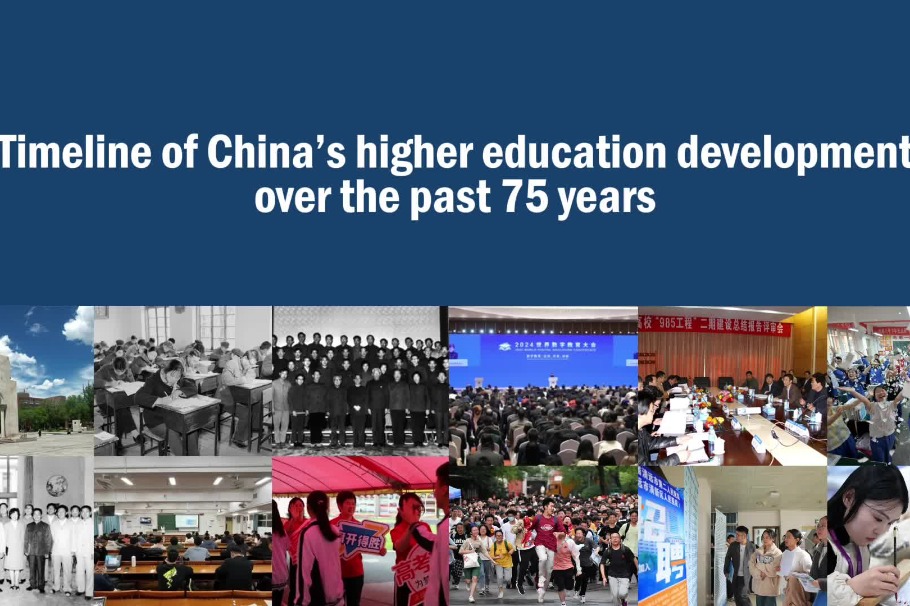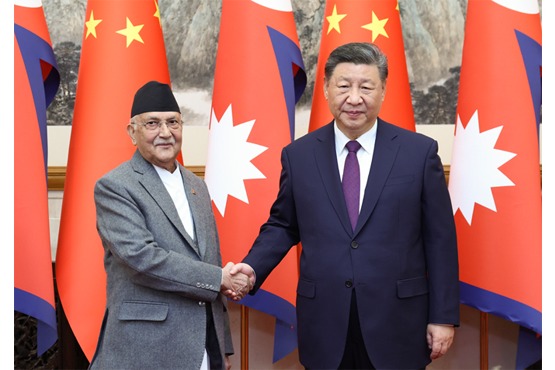Impressive achievements of CPC offer lessons for other nations


China is set to mark 100 years since the Communist Party of China was established. The CPC has been central to the development of China, which is now the world's second-largest economy and the first developing country to achieve the United Nations Sustainable Development Goal on poverty eradication.
China has also left indelible footprints through technological advancements in such areas as military power, artificial intelligence, medical research, e-commerce and infrastructure development.
It is little wonder, therefore, that the Chinese development miracle under the leadership of the CPC has provided a learning point for other societies, as evidenced by the many exchanges with political parties from other countries, particularly in the developing "global south".
Despite China's massive and multiethnic population, the CPC has managed to preserve the unity and harmony of the people, with approval ratings above 90 percent. Some of the enviable attributes that have endeared the Party to the people include effective political and economic planning, with clear targets and accompanying timelines. This has also facilitated resource mobilization, deployment and evaluation.
Taking the cue from its revolutionary past, the CPC has fashioned a participatory form of governance in which people-centered policies arise from carefully designed and piloted development concepts. From special economic zones and agricultural demonstrations to artificial intelligence and 5G deployments, piloting has been a key process in China's policymaking and innovation.
While the CPC has had such enviable success in managing the affairs of China, the coming decades will present new opportunities and challenges to the Party's staying power and vitality. As China becomes more powerful, there will be additional pressure to deliver better quality of life for its citizens. This means keeping the trajectory of socioeconomic transformation, not just completely climbing out of the poverty curve, but also ensuring that inequality is reduced so there is more inclusive growth.
Externally, China's rise has been received differently in various parts of the world.
Some countries see China as a strategic rival, one that is out to eat their power pie in the realm of international relations.
On the other hand, there are countries, mostly in the developing South, that see China's rise as an opportunity and inspiration for their own socioeconomic transformation. The CPC should find sustainable ways of managing these expectations and viewpoints, much like it has done over the past decades.
Due to its policy of noninterference in the domestic affairs of other countries, mutuality and equality, China has managed to stay away from many international conflicts, setting it aside from other great powers. Equally, by prioritizing the ideas of peaceful development, multilateralism and shared prosperity for mankind, the CPC has won much admiration from many quarters.
Through the Belt and Road Initiative, China is sharing the proceeds of its development with the rest of the world on the five pillars of infrastructure connectivity, policy coordination, financial inclusion, trade, and people-to-people exchanges. The BRI is just one of the many avenues by which China is nudging the international community to re-imagine international cooperation, in which peace and development take precedence over confrontation and protectionism.
Although China was also a victim of external aggression and colonialism, Beijing has, under the leadership of the CPC, demonstrated that it is possible to chalk one's own path to greatness. African societies must not necessarily follow the China model, but the Asian economic behemoth offers governance innovations that could easily unlock the continent's potential.
The CPC will celebrate its centenary against the backdrop of a raging global pandemic that is threatening lives and livelihoods in equal measure. China was the only major country to see positive economic growth in 2020. This year, the Chinese economy is slated to expand by at least 6 percent, according to the government. The growth will not only foster recovery within China, but also promote global economic regeneration.
The writer is a scholar of international relations with a focus on China-Africa relations. The views do not necessarily reflect those of China Daily.
- Construction site accident leaves 6 dead in Shandong
- Famous romance novelist Chiung Yao passes away
- National College Student English Drama Festival
- China's higher education soars: 75 years of remarkable growth
- China launches new remote-sensing satellite
- China's railway passenger traffic exceeds 4b in first 11 months





































